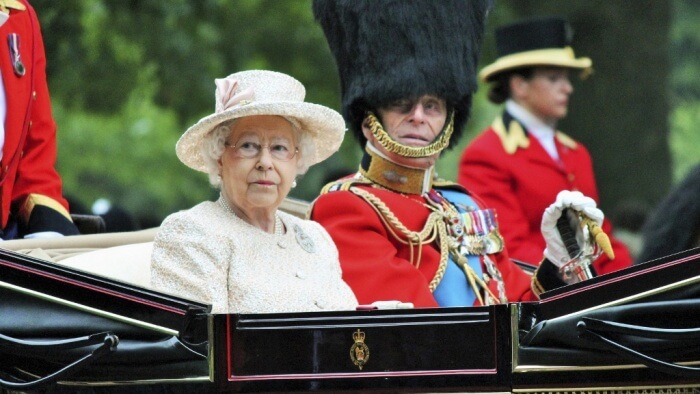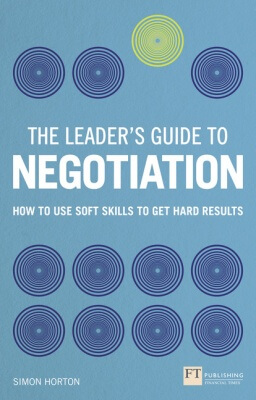Is Your Body Language Setting You Up To Lose In Negotiations?
Negotiation is an art and a science - and you can get much better at it if you try.

Negotiation is, of course, all about communication but have you ever thought about what you are communicating through your body language?
Think about it, spoken language has been around for a million years at most but animals have been communicating through body language for hundreds of millions of years. So we have very deep wiring to transmit and receive on these channels above and beyond the spoken word. How might these be impacting your negotiation?
Let’s take an example, you might ask me do I like Donald trump and I could answer yes, with an energy and a big smile and looking up, or I could say the same word, with a snort, a wry smile and a roll of the eyes. Identical verbal communication, polar opposite meanings. All of the information was being transmitted through the non-verbal channels.
Now that is quite an extreme example that most of us would be able to read but you can imagine another scenario where important information, material to the outcome, is communicated non-verbally. Are you in control of this?
Reading the ‘tell’
Poker players know all about this. They know that tiny twitch at the side of the mouth, or that slightly faster breath, or that drop of the eyes to the floor, means something.
Paul Ekman is one of the most influential psychologists of both the 20th and 21st century and one of his areas of specialism is facial expression. He will film people at 100 frames a second and then watch the footage one frame at a time. And in that 1/100th of a second, you can see what he calls micro-expressions as each thought and micro-thought passes through the person’s mind.
Interestingly, he can train you to notice these micro-expressions in real time.
How much are you giving away?
Now, the person sitting on the other side of the table in your negotiation may not be a fully trained lie detector but maybe they don’t have to be. Maybe you are leaking more than you imagine. Maybe they don’t even pick up the signs consciously but they do sense something – something about your demeanour, they don’t know what, raises a particular thought.
Giving away information isn’t always a bad thing. In fact, the ideal negotiation is where the trust is so great that both parties are working on a fully open-book basis and in that instance showing a little wobble in the voice isn’t a problem.
But that kind of conversation isn’t always possible and can, indeed, be downright naïve so in many situations you need to make sure you don’t leak quite so much.
How do you make sure you don’t undermine your message with your non-verbals? Probably the most powerful method is to always be honest and authentic, in which case the issue wont come up.
But if that’s not possible, make sure you’ve prepared and you’re ready for any question that might come up and have maybe even rehearsed some of your answers. Then they will come across more coherently in the real negotiation.
What status are you projecting?
But body language is much more than exposing emotions or white lies. For example, it communicates status. We are pack animals and status is extremely important for pack animals – it decides how much food you get and whether your genes get into the next generation or not.
And, more relevantly, it impacts how you are treated in your negotiation. Most people will find it easier to negotiate with the junior of the organisation than the CEO, and a lot of that is to do with status. But interestingly, status is not absolute, there is no grand register where you can check your status score – what counts in status is what is perceived and that, in turn, depends on what is projected.
So what status do you project? Do you walk timidly into the room, hoping not to be seen, talk quietly and rarely give strong eye contact? Or do you sit and stand tall, give a good handshake, lots of eye contact, and talk with a strong voice? Or are you leaning forward with unwavering eye contact, pointing fingers, banging tables and shouting?
Make sure the status you are projecting is the Goldilocks status – that status which is just right for your situation and communicate it with all the appropriate body language.
Do you believe in what you are saying?
Linked to status is credibility. Do they believe you will deliver on your promise?
Deborah Tannen, Professor of Linguistics at Georgetown University, studied chief executives who often have to ‘make decisions in five minutes about matters on which others may have worked five months’.
How do they do this? She found they base their decision on how confidently it is presented. Make your case and pack it with erms and errs and possibly’s and maybe’s, whilst shaking the head and looking down, and they simply won’t buy into it, even if it is true. But back it up with lots of confident and assertive body language and they will sign up, even if the reality is not quite as straightforward as you suggest.
Are you too scary?
Of course, it’s not all about showing how strong and confident you are. The other side of the coin is communicating openness and approachability. Many people want to work with people they like and a strong relationship will definitely help the negotiation when it is going through a tricky phase. And that is a whole different set of body language elements.
Smiling, lots of facial expression and head movement, lots of hand gestures and sentences finishing on the up (like an implied question-mark) all tend to suggest approachability and friendliness. In contrast to silence, lack of facial expression and movement, staring stony-faced back which people typically find uncomfortable to be with.
Projecting similarity
You can also build rapport and relationship in your negotiation by matching the other person’s body language. Neuro-scientists have discovered a part of the brain called mirror neurons that notice movement in other people and fire an impulse for the same movement in ourselves.
Consequently, subconsciously people tend to feel more comfortable in your presence if you match their posture, make similar gestures and generally follow their lead in the non-verbals.
This isn’t to copy, of course. If you are too obvious with this, there is no quicker way to lose rapport. They will notice, start to edge away from you and think you’re a freak!
…or not.
And, actually, you don’t always want to match. There can be many times in the negotiation that you specifically want to mismatch. If you want to close down a meeting, steer the conversation away from the current topic, communicate disagreement with what is being said, mis-matching their behaviour can be the best way of doing it. It will communicate all of these without actually saying anything verbally.
Your body language talks very loudly. Make sure it agrees with what you are saying.
The Leader’s Guide to Negotiation: How to use soft skills to get hard results by Simon Horton is available now, published by FT Publishing priced £16.99.
Thanks for signing up to Minutehack alerts.
Brilliant editorials heading your way soon.
Okay, Thanks!






